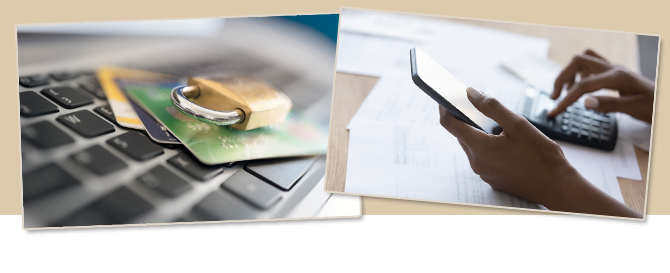In 2020, coronavirus has led to more people shopping online. Scammers have taken advantage of this trend by setting up fake websites and deceiving people into buying from them. If you’ve placed an order through a scam website, you might receive a fake, low-quality product compared to what was promised, or nothing at all. Classified scams are a subset of this type of scam, where scammers pose as genuine sellers, posting fake ads on either a classifieds website, newspaper, or via email or social media.
Watch Out For
- You know what they say about things that seem too good to be true – be cautious of luxury items or popular brands for unusually low prices
- Websites that don’t have privacy policies, T&Cs, refund information or ways of contacting customer service
- A sense of urgency – scammers often try to pressure you with “limited offers” or end-of-sale “countdowns”
- Online stores or ads that request you to use non-secure payment methods. These include wire or bank transfers, money orders, preloaded gift cards and crypto currencies like Bitcoin and Ethereum. Using these methods can make it hard to recover lost money
Steps to Prevention
- Go directly to online stores using your web browser instead of clicking an email or social media link
- Check reviews of the store and its products on Google
- Read the comments on a store’s social media ads to see what other people are saying about them
- Regularly check your statements. If you’ve been shopping online, keep an eye on your transaction history and report anything suspicious as soon as possible. A small, unauthorized charge can be the first sign of credit card theft – scammers often do it to check if your account is active
- Think twice before connecting to free public Wi-Fi networks. Cybercriminals can lurk on public networks and intercept your activities, or even set up rogue hotspots for you to connect to, so never shop or bank online using public Wi-Fi
- Make sure your computer’s anti-virus is up to date before shopping or browsing online
- If you need to create accounts with online stores, make sure you use strong and unique passwords – don’t reuse your internet banking, email or social media passwords
- Generally, debit cards don’t offer the same level of buyer protection as other payment methods, so it’s recommended to pay with a credit card or payment system (e.g., PayPal)
Social Media/Marketplaces Pre-owned Purchases Tips
- Ask as many questions as possible upfront
- Look at the seller’s profile and past feedback
- Never share your bank account details or passwords, or transfer a deposit without seeing what you’re buying first






